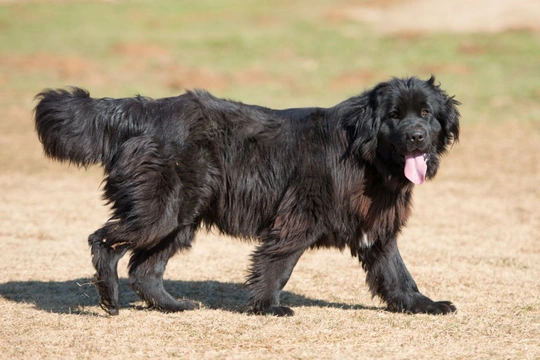
Cystinuria (CU) in dogs
Cystinuria or CU for short is a hereditary health condition that affects the tubules of the dog’s kidneys, which when properly formed filter cysteine, a type of amino acid that should reabsorbed by the body rather than passing out in the dog’s urine. When cysteine is present in the urine, it can form into crystals that in turn, can form into stones, which can potentially block the urinary tract and urethra, particularly in male dogs.
The condition is apt to cause an increased risk of urinary tract infections in the dog in question, as well as running the risk of causing blockages due to the stones, which then need to be surgically removed lest they cause a more acute problem such as kidney failure or a rupture of the bladder itself.
As a hereditary health condition, cystinuria is not contagious and can only be passed from dog to dog by means of inheritance of the mutated genes that cause the condition, and dogs of breeds known to be at risk for the spread of the gene mutation should be tested prior to breeding, to ensure that they do not pass the condition on to their own offspring.
The Kennel Club oversees a health testing scheme for the condition in breeds that have been identified as at risk, which allows breeders to make an informed decision about the viability of any given dog as breeding stock, and to find the right match to pair them with.
In this article, we will look at cystinuria in dogs in more detail, including what sort of dogs can be affected by the condition, how the heredity of the condition works, and how to get your dog tested. Read on to learn more.
More about cystinuria in dogs
While cystinuria is present from birth in affected dogs, it may not become symptomatic for several years, and in some affected dogs, the condition’s presentation is so mild that it is never detected because it does not cause any major problems. However, for some dogs the condition can be very dangerous, as the stones that it forms can cause blockages, raise the risk of infections, and cause serious damage to the bladder and kidneys.
Cystinuria does not lead to stone formation in all dogs, and while both males and females can be affected by the condition, it tends to be males that have more serious symptoms and that are more apt to have problems due to it.
The condition can be managed to some extent by feeding a specialised diet that is low in protein and so, less likely to lead to stone formation, and also that is designed to balance out the acidity levels of the urine itself.
Medications can be used too to control the urine’s acidity level and reduce the chances of stone formation, although this can prove costly over the lifetime of the dog.
What sort of dogs are at risk of the condition?
Cystinuria is a hereditary health condition, and in different countries, different breeds present with the gene mutation that cause the condition at different rates of prevalence. In the UK, the breeds that are classed as at risk to the extent that pre-breeding screening is advisable are the Newfoundland and the Landseer.
Cross breed dogs from breeds known to potentially carry the condition can of course inherit one of the mutated genes for the condition from the at-risk side of their parentage too, but because it is the combination of genes from both side of the parentage that dictates the status of the condition in any given dog, cross breed dogs are highly unlikely to be affected by the condition themselves.
How does the heredity of the condition work?
Cystinuria is inherited by means of autosomal recessive heredity, which means that the status of any given dog is determined by the genes that they inherit from both of their parents in combination. Dogs are given a status of either clear, carrier or affected, and knowing the status of the two parent dogs allows you to determine what the status of their offspring will be too.
- Two clear dogs will have clear puppies.
- Two affected dogs will have affected puppies.
- Two carriers will have a mixture of 50% carriers, 25% clear and 25% affected.
- A clear dog and a carrier will have 50% clear and 50% carrier puppies.
- A clear dog and an affected dog will produce a litter of carriers.
- A carrier and an affected dog will produce 50% carriers and 50% affected.
How to get your dog tested for cystinuria
In order to get your dog tested for their status and so, be able to make an informed decision about breeding, you will need to send off a sample of your dog’s DNA in the form of a cheek swab or a vial of blood to one of The Kennel Club’s approved laboratories. They will then return the status of your dog to you, and in the case of the Newfoundland breed, also register the results with The Kennel Club for inclusion in their breed database.



